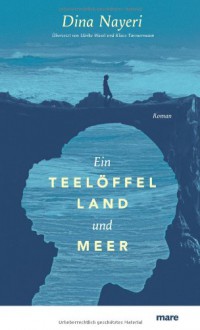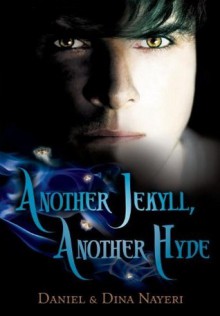
Saba und Mahtab, Zwillinge, sind unzertrennlich. Doch nur bis zu ihrem elften Geburtstag. Denn Mathab und ihre Mutter verschwinden innerhalb kurzer Zeit auf mysteriöse Weise. Saba bleibt als halber Mensch zurück. Das Dorf redet von einem Badeunfall im Kaspischen Meer und die missglückte Flucht ihrer Mutter aus dem Iran. Aber Saba glaubt an ihren Zwillingssinn und eine andere Geschichte.
Meinung
Schreibstil
Das Buch ist überwiegend in der dritten Person geschrieben. Nur zwischendrin gibt es immer wieder kurze Kapitel ihrer Dorfmütter, die von ihnen direkt erzählt werden und mit dem Leser ihre Gedanken und Erinnerungen teilen. Der Schreibstil war schlicht, ohne übertriebene Ausschmückungen und trotzdem detailliert genug und berührend. Dennoch hatte ich am Anfang etwas Probleme in den Stil zu finden. Nach den kurzen Anlaufschwierigkeiten konnte mich Dina Nayeri aber noch komplett einnehmen.
Charaktere und Geschichte
Als Saba elf Jahre alt ist, verändern zwei einschneidende Ergebnisse ihr Leben für immer. Die islamische Revolution nimmt gerade ihren Lauf, weshalb ihre christliche Familie Teheran verlassen und auf ihre Ländereien in der Gila-Provinz ziehen muss. Nur kurze Zeit später verschwinden ihre Mutter und ihre Zwillingsschwester Mahtab spurlos. Mahtab soll ertrunken sein. Ihre Mutter soll bei ihrer Flucht aus dem Iran festgenommen worden sein.
Aber Saba will das nicht glaub. Sie ist sich sicher, dass Mathab und ihre Mutter am Flughafen in ein Flugzeug gestiegen sind und jetzt in Amerika ein gutes Leben führen. Doch je älter sie wird, desto unsicherer ist sie. Was ist Wahrheit, was ist Lüge? Wenn sie noch Leben, warum nehmen sie keinen Kontakt auf? Und auch wichtige Fragen in ihrem Leben machen es nicht einfacher. Was ist wichtiger, die eigenen Prinzipien, Wünsche, Träume oder Liebe und Sicherheit? Wann wird es Zeit, eigene Entscheidungen zu treffen und das eigene Schicksal in die Hände zu nehmen?
Wir lernen Saba kennen, als sie ein zerbrechliches, elfjähriges Mädchen ist, das gerade erst Mutter und Schwester verloren hat. Verzweifelt versucht sie die Wahrheit herauszufinden und sich an die Hoffnung zu klammern, ihre Schwester würde noch Leben.
„Mann muss es nicht aus ihrem Mund hören, wenn man deutlich sehe kann, wie ihre Hand nach diesem fehlenden Menschen greift, der immer links von ihr Stand.“ (S. 20)
Ihren besten Freunden Reza und Ponneh erzählt sie Geschichten über sie und wartet sehnsüchtig auf einen Brief von Mathab. Auch ihren drei Dorfmüttern, die jede einen wichtigen Teil in ihrem Leben einnehmen, erzählt sie diese Geschichten. Doch eine, Rezas Mutter, macht sich deshalb große Sorgen.
„Ich denke, dass diese Geschichte viele Arten von Wahrheiten enthält, und die größte davon ist, dass Mathab irgendwo noch immer lebt.“ (S. 139)
Wir erleben mit, wie sich Saba von einem kleinen, geschlagenen Mädchen in eine selbstbewusste Frau verwandeln wird, die versucht, ihren Weg im Leben zu gehen. Auf ihrem Weg versucht sie immer die Wahrheit zu finden und muss einiges einstecken. Sie ist ein wirklich starker, authentischer und tiefgründiger Hauptcharakter, denn man nur ins Herz schließen kann.
Und auch die anderen Charaktere, ihre besten Freunde, ihr Vater, die Mullahs, ihre Dorfmütter sind alle individuelle, starke, mal mehr, mal weniger sympathische Charaktere. Sie alle tragen einen wichtigen Teil zur Geschichte bei und machen das Buch abwechslungsreich und spannend.
Das Buch erzählt die Geschichte von diesem unsichtbarem Faden, dieser tiefen Verbindung von Zwillingen. Und davon, was passiert, wenn Zwillinge getrennt werden, wie sinnlos und leer sich Saba dann fühlte. Sie erzählt vom Kampf des Erwachsenwerdens als ein Mädchen im Iran. Vom Kampf der Frauen im Iran im allgemeinen und den Ängsten und Sorgen, die sie nach der islamischen Revolution ausstehen.
Einer Welt, in der eine Frau ausgepeitscht wird, weil eine rote Schuhspitze zu sehen war. Es erzählt, wie Saba versucht, dennoch sich selbst zu finden, ihren Prinzipien treu zu bleiben und ihre Träume später zu leben. Träume von einem Leben in Amerika, einem Studium und Unabhängigkeit. Außerhalb eines Leben, in dem Männer die Macht haben und über Frauen und ihr Handeln bestimmen.
„Manchmal, in ihren grausamsten Tagträumen, wenn Abbas ins Kaspische Meer geworfen oder ausgeweidet wird, fürchtet sie, dass sie genauso ist wie die Basidsch-Frauen. Dass auch in ihr eine bösartig grinsende Bestie lauert […]“ (S. 379)
Fazit
Eine Geschichte, die von der tiefen Verbindung zwischen Zwillingen erzählt. Eine Geschichte über Sorgen und Ängste der Frauen, in dieser Welt, in der Männer die Macht haben, über sie bestimmen und den kleinsten Fehltritt bestrafen. Und über die eigenen Träume, Wünsche und die Sehnsucht nach echter Liebe.
Über die Hoffnung auf eine Zukunft in Freiheit und voller Unabhängigkeit. Die Charaktere waren authentisch, stark und individuell und der Schreibstil schlicht aber packend. Stellenweise war die Geschichte etwas lang und ich hatte etwas Anlaufschwierigkeiten. Deshalb gibt es vier Sterne und eine Leseempfehlung.
 Life is just a bowl of (sour) cherries
Life is just a bowl of (sour) cherries
 Log in with Facebook
Log in with Facebook 








